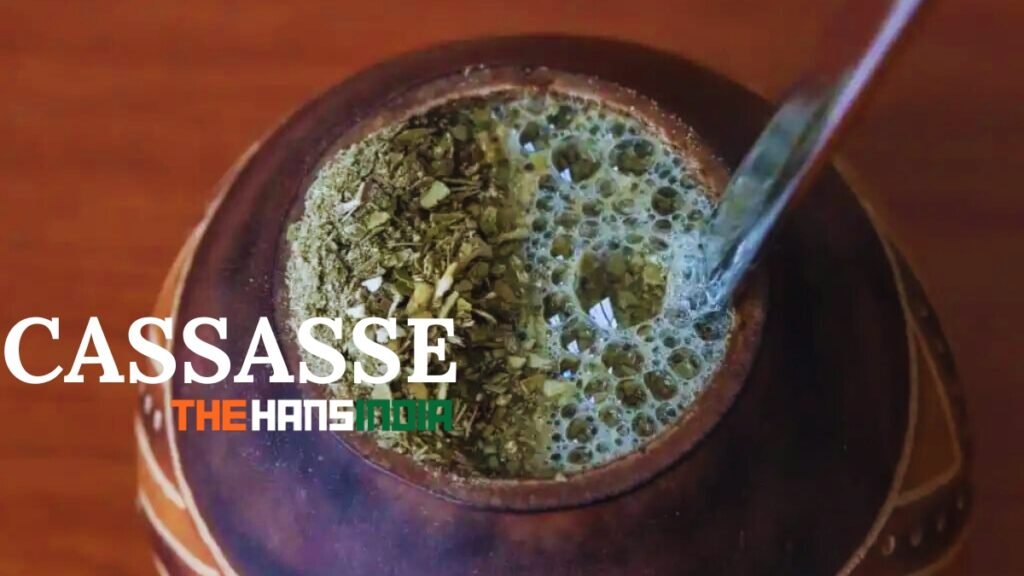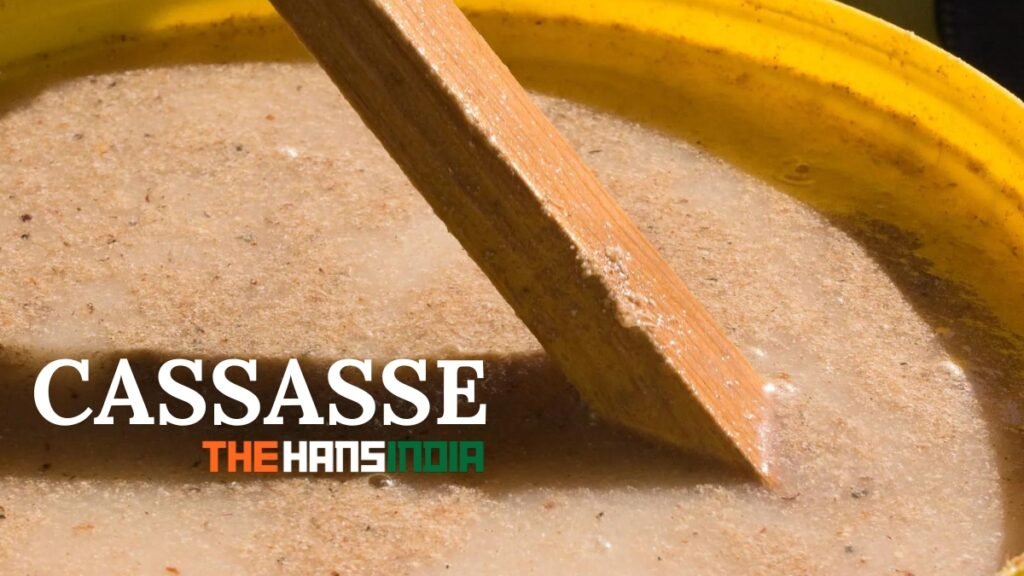Introduction
Cassasse is more than just a beverage—it’s a window into the cultural and historical fabric of the communities that cherish it. This traditional drink, primarily rooted in African traditions, holds a significant place in both the culinary and medicinal practices of the regions where it is made. Over the years, cassasse has gained attention not only for its unique taste but also for its array of health benefits. This article dives deep into the origins, preparation, health benefits, and cultural significance of cassasse, providing a comprehensive understanding of why this traditional drink remains an important part of various cultures.
What is Cassasse?
Cassasse is a traditional African drink, often made from fermented cassava or other local ingredients, depending on the region. It’s typically associated with West African countries, where it’s enjoyed in both casual and ceremonial settings. The drink has a slightly sour taste due to the fermentation process, and it’s known for being both refreshing and nutritious.
The Origins of Cassasse
The origins of cassasse can be traced back to centuries-old African traditions. Cassava, a staple crop in many African countries, has been fermented and consumed in various forms for generations. The exact history of cassasse is difficult to pinpoint, but it is deeply intertwined with the agricultural practices and culinary innovations of West African societies.
How is Cassasse Made?
Ingredients and Preparation
Cassasse is typically made from cassava, which is peeled, grated, and then fermented for several days. The fermentation process is crucial, as it breaks down the cassava’s starches into sugars, creating a drink that’s slightly sweet and sour. After fermentation, the mixture is often strained to remove any solids, resulting in a smooth, drinkable liquid.
Traditional Methods of Preparation
In many communities, the preparation of cassasse is a communal activity, with each family or village contributing to the process. The drink is often prepared in large quantities and stored in earthenware pots, which help maintain its cool temperature. The traditional method of making cassasse emphasizes patience and care, as the fermentation process cannot be rushed without affecting the flavor.
Health Benefits of Cassasse
Rich in Nutrients
Cassasse is rich in several essential nutrients, including vitamins C and B, calcium, and potassium. These nutrients contribute to its reputation as a health-boosting drink, providing energy and supporting various bodily functions.
Probiotic Properties
The fermentation process involved in making cassasse introduces beneficial bacteria, or probiotics, into the drink. These probiotics are known to promote gut health by improving digestion and boosting the immune system.

Hydration and Electrolyte Balance
Cassasse is also an excellent source of hydration, especially in hot climates. The natural electrolytes present in the drink help maintain the body’s fluid balance, making it a great option for replenishing lost minerals after physical activity or illness.
Low in Calories
For those looking to maintain a healthy weight, cassasse offers a low-calorie alternative to sugary beverages. Its natural fermentation process means it contains fewer sugars than many commercially available drinks.
Cassasse in African Culture
Ceremonial Uses
Cassasse holds a significant place in various African ceremonies, including weddings, funerals, and harvest festivals. It is often served as a symbol of hospitality and respect, with the preparation and sharing of the drink seen as an important communal activity.
Social Gatherings
Beyond formal ceremonies, cassasse is also a staple at social gatherings. It’s enjoyed by people of all ages and is often served alongside traditional foods. In many communities, offering a guest cassasse is a gesture of goodwill and friendship.
Economic Importance
In some regions, cassasse production is a vital part of the local economy. Families and small businesses produce the drink not only for personal consumption but also for sale at markets. This economic aspect of cassasse production helps sustain communities and preserve traditional methods of food and drink preparation.
Cassasse and Modern Trends
Growing Popularity Outside Africa
In recent years, cassasse has started to gain popularity outside of Africa, particularly in regions with large African diaspora communities. Its unique flavor and health benefits have attracted the attention of health-conscious consumers looking for natural, fermented beverages.
Incorporation into Fusion Cuisine
Chefs and food enthusiasts are beginning to experiment with cassasse in fusion cuisine, incorporating it into cocktails, desserts, and even savory dishes. This modern twist on a traditional drink highlights its versatility and potential as a global culinary staple.
How to Make Cassasse at Home
Simple Recipe
Making cassasse at home is relatively straightforward. Here’s a basic recipe to get you started:
Ingredients:
- 2 large cassava roots
- 4 cups of water
- 1 teaspoon of sugar (optional)
Instructions:
- Peel and grate the cassava roots.
- Mix the grated cassava with water in a large bowl.
- Cover the bowl with a cloth and let it sit at room temperature for 3-4 days to ferment.
- After fermentation, strain the mixture to remove the solids.
- Refrigerate the liquid and serve it chilled.
Tips for a Better Cassasse
- Fermentation Time: The longer you ferment the cassava, the more pronounced the sour flavor will be. Adjust the fermentation time to suit your taste preferences.
- Flavor Enhancements: Add ginger, lime, or other spices to the mixture before fermenting to give the cassasse a unique twist.
- Serving Suggestions: Cassasse is best served cold, especially in hot weather. Consider pairing it with spicy African dishes to balance the flavors.
Nutritional Profile of Cassasse
Vitamins and Minerals
Cassasse is a good source of several vitamins and minerals that are essential for maintaining good health. These include:
- Vitamin C: Supports immune function and skin health.
- B Vitamins: Important for energy production and brain health.
- Calcium: Essential for bone health.
- Potassium: Helps regulate blood pressure and fluid balance.
Caloric Content
One of the key advantages of cassasse is its low caloric content. With fewer calories than most commercial beverages, it’s a great choice for those looking to reduce their sugar intake without sacrificing flavor.
Cultural Variations of Cassasse
Regional Differences in Preparation
While cassasse is made from cassava in many regions, the exact preparation methods can vary significantly. In some areas, additional ingredients like palm wine, millet, or maize are added to the mix, creating variations in flavor and texture.

Flavor Profiles Across Africa
The taste of cassasse can also vary depending on the region. In some places, it’s sweeter, while in others, it may have a more tangy or earthy flavor. These variations reflect the diverse culinary traditions of the African continent.
Cassasse in Traditional Medicine
Historical Uses
Cassasse has been used in traditional African medicine for centuries. Its probiotic properties made it a go-to remedy for digestive issues, while its nutrient content helped treat malnutrition and fatigue.
Modern Perspectives
Today, many of the health benefits attributed to cassasse by traditional medicine are being validated by modern science. Studies on fermented foods have highlighted the importance of probiotics in maintaining gut health, lending credibility to the long-held beliefs about cassasse’s healing properties.
Sustainability and Cassasse Production
Environmental Impact
Cassava, the main ingredient in cassasse, is a hardy crop that requires minimal resources to grow. This makes cassasse production relatively sustainable, particularly when compared to other commercial beverages that rely on water-intensive crops.
Supporting Local Economies
By choosing to purchase cassasse from local producers, consumers can support small-scale farmers and contribute to the preservation of traditional agricultural practices. This not only benefits the environment but also helps maintain the cultural heritage associated with cassasse production.
Challenges in Cassasse Production
Consistency in Quality
One of the challenges faced by cassasse producers is maintaining consistency in quality. Because the drink is made using traditional methods, the flavor and texture can vary from batch to batch. This can make it difficult to market cassasse on a larger scale.
Market Access
Another challenge is gaining access to broader markets. While cassasse is well-known in its regions of origin, it remains relatively obscure in other parts of the world. Expanding its reach will require education and marketing efforts to introduce the drink to new consumers.
Future of Cassasse
Potential for Global Popularity
As interest in natural and fermented foods continues to grow, cassasse is well-positioned to become a popular choice among health-conscious consumers worldwide. Its unique flavor, coupled with its health benefits, makes it a strong contender in the global beverage market.
Innovations in Production
Advances in food technology may also help address some of the challenges in cassasse production, such as improving consistency and extending shelf life. These innovations could make cassasse more accessible to a wider audience without compromising its traditional roots.
Conclusion
Cassasse is more than just a traditional African drink; it’s a symbol of cultural heritage, community, and well-being. Its health benefits, rooted in its natural ingredients and fermentation process, make it a unique and valuable addition to any diet. As more people discover cassasse, it has the potential to grow beyond its traditional roots and gain global recognition as a delicious, nutritious, and culturally significant beverage.
Frequently Asked Questions
Is cassasse alcoholic?
Cassasse is usually non-alcoholic, though it may contain trace amounts of alcohol due to the fermentation process. The alcohol content is typically very low, making it safe for most people to consume.
Can cassasse be stored for a long time?
Cassasse can be stored in the refrigerator for up to a week. However, like most fermented drinks, it is best consumed fresh to enjoy its full flavor and health benefits.
Is cassasse gluten-free?
Yes, cassasse is naturally gluten-free, making it a suitable beverage for those with gluten sensitivities or celiac disease.
What does cassasse taste like?
Cassasse has a slightly sour, tangy flavor with subtle sweetness. The exact taste can vary depending on the fermentation process and any additional ingredients used.
Can I make cassasse with other ingredients besides cassava?
While cassava is the traditional base for cassasse, some variations use other starchy ingredients like millet or maize. These versions may have different flavors and textures but follow a similar fermentation process.
Is cassasse good for digestion?
Yes, cassasse contains probiotics that are beneficial for digestive health. Regular consumption of cassasse can help maintain a healthy balance of gut bacteria, aiding digestion and supporting overall well-being.


